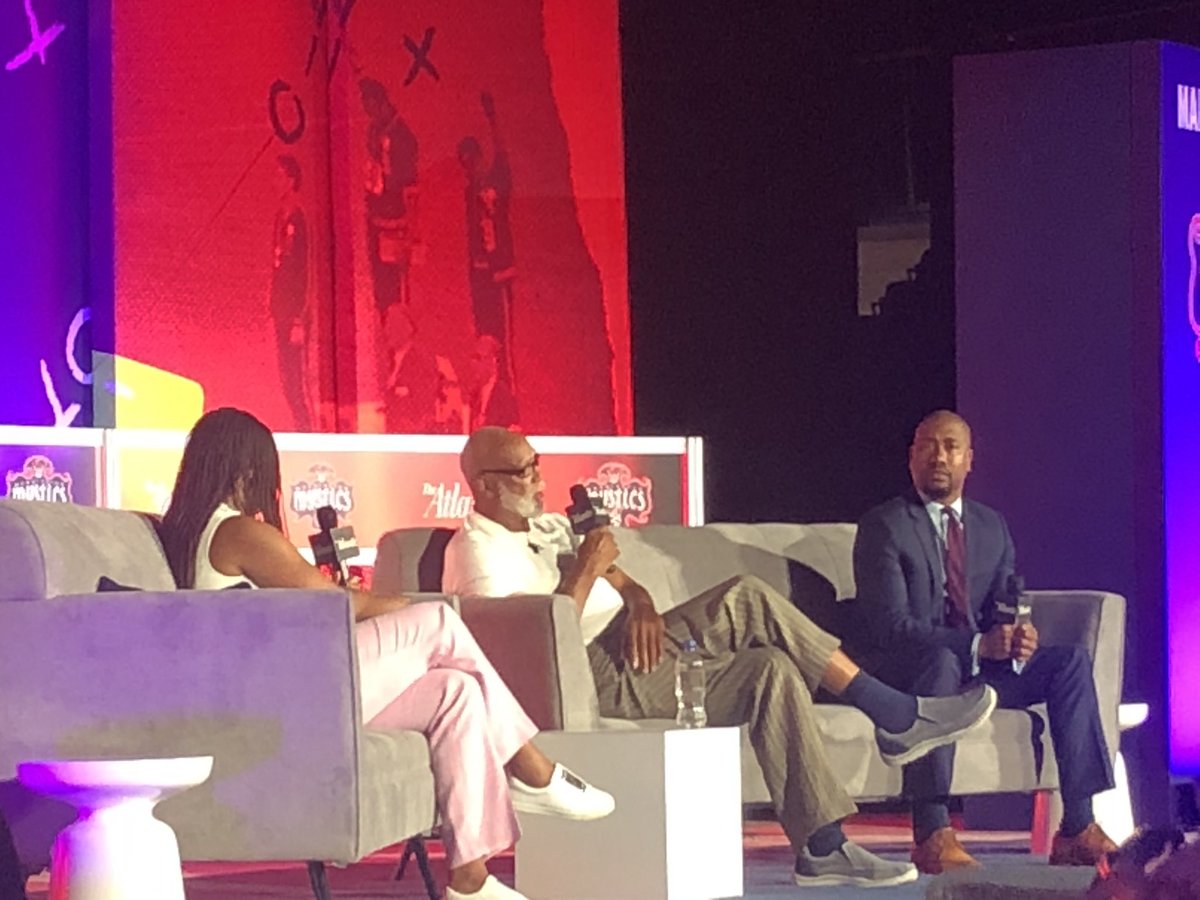Standing on the victory podium with his fist defiantly held in the air in the Black Power salute, African-American sprinter John Carlos knew his action would spark outrage around the world.
But as an athlete who just won a bronze medal in track and field at the 1968 Olympic games, Carlos recognized that his fame could leverage his statement — a message at the center of racial, political and social conflict — to a greater platform than the ordinary citizen.
As an African American man growing up in the 1950s, Carlos was told early on that he would never be able to compete at the Olympic level. Instead, he’s fought back, devoting his life to advocating for people of color.
“While they can take my life away, they can’t take away a statement made on the victory stand,” Carlos said. “But we can’t just put our fists in the air, we all need to take a stand to rid the ills of society.”
Carlos shared his story at the inaugural Athletes + Activism event hosted by the Atlantic and the Washington Mystics last Thursday at the new Entertainment and Sports Arena in Washington. The event, moderated by Atlantic staff writer Jemele Hill, included a diverse panel of athlete-activists speaking on the intersection between athletics and social change.
Discussions ranged from the lawsuit filed by the Women’s national soccer team for equal pay, the importance of Title IX in sports, mental health among athletes, how to serve as an ally for LGBTQ+ athletes and how to advocate for your rights as both a player and an activist.
Damion Thomas, the curator of sports at the Smithsonian National Museum of African American History and Culture, opened the first panel with a conversation about the historical importance held by athletes throughout the last century. Sports, he said, provides a way for people to fight back, even when told they can’t.
“Athletes don’t tend to lead social revolutions, they respond to them,” Thomas said. “It becomes a natural conversation, the athletes become the voice for the voiceless.”
Briana Scurry, Olympic gold medalist and member of the U.S. Women’s Soccer team, spoke about the team’s recent gender discrimination lawsuit against U.S. Soccer. The women’s team is fighting for pay equity and better working conditions.
“We’re not asking for more, just to be treated equal to the men,” Scurry said. “And you can’t say it’s because we’re not the dominant team — we’ve won so many more world championships than the men.”
Joining the conversation on activism was former NFL player Martellus Bennett who helped the New England Patriots win the Superbowl in 2017; Natasha Cloud, a guard for the Washington Mystics; and Hudson Taylor, wrestler and founder of Athlete Ally. Athletes, they said, can force conversations to occur, but it takes unity among teammates to be successful.
“Language says stick to sports, but in many sports, the risk doesn’t outweigh the reward,” Taylor said. “Unless we have a sports culture the embraces athletes, the view will be a culture that says ‘don’t share my identity or story with the world.’”
Without athletes, Bennett argued, the sports industry collapses. If coaches and officials recognize the autonomy of players, more athletes would speak out without fear of repercussions.
“If Drew Brees or Tom Brady stood with Kaepernick and took a knee, the conversation would change completely,” Bennett said. “Their visibility would bring the conversation to the forefront in a way that some of the lesser-known players can’t.”
As the program ended, Olympic fencing bronze medalist Ibtihaj Muhammad addressed the crowd to talk about her journey as the first Muslim woman to represent the United States while wearing a hijab. From attending training camps while fasting for Ramadan to a constant barrage of racist comments, she often felt inadequate and antagonized because of her faith. Now, she wants her story to force the country to rethink the narrative that athletes must present themselves a certain way.
“For everyone who makes you feel like you don’t belong as an athlete, we all just want to play and win,” Muhammad said. “We don’t want the spotlight and judgement to set in before we begin.”


